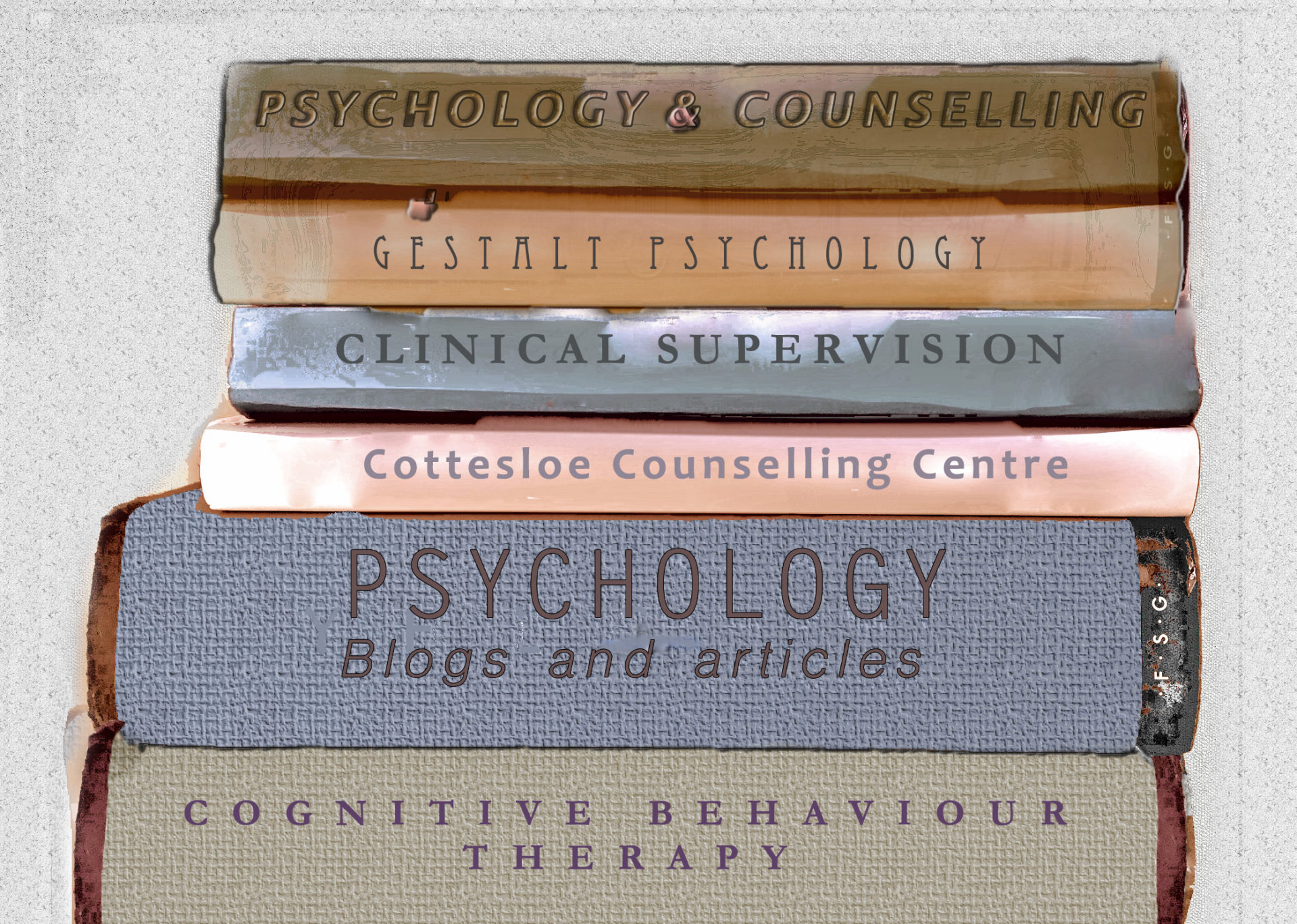Guilt is an emotional state where we experience conflict at having done something that we believe we should not have done (or conversely, having not done something we believe we should have done). This can give rise to a feeling state which does not go away easily and can be difficult to endure.
If you are experiencing feelings of guilt you are likely to be focussing on something that you have done that is embarrassing, harmful to another person, or some other behaviour which has contributed to negative consequences for you or someone else. Sometimes this feeling of guilt can become so big that you may feel overwhelmed and do not have a way to manage the intensity of your feelings.
Guilt and shame are similar emotions in that both involve feeling bad about oneself. Guilt is generally associated with something one has done (or not done). Shame, on the other hand, is often experienced as a feeling of being a bad, unworthy, hateful person. When shame becomes deep-rooted and generalised to who one is, it is a very destructive, painful emotion.
It’s amazing how quickly guilt can kick in for the smallest, most meaningless things in our lives. Guilt is an emotional warning sign that most people learn through their normal childhood social development. Its purpose is to let us know when we’ve done something wrong, to help us develop a better sense of our behaviour and how it affects ourselves and others. It prompts us to re-examine our behaviour so that we don’t end up making the same mistake twice.
Unhealthy guilt
Unhealthy guilt does not allow for mistakes; we expect too much from ourselves and others. Guilt is unhealthy if it is out of proportion or causes acute distress. Unhealthy guilt can arise because of:
- A clash between value systems. For example, some cultures have very strict rules about sexual behaviour, however, mainstream Australian culture is relatively relaxed in its approach to sex. A person who grows up in Australia but whose parents are from another culture might feel guilt about their own sexual behaviour as a result of the clash between cultural value systems.
- Excessively harsh or abusive discipline. If rules of behaviour have been enforced abusively or with excessive force, the fear of punishment can be internalised as a high degree of guilt.
- Unrealistic standards of behaviour. Nobody is perfect. If you expect never to feel angry, always to tell the truth and never to have a mean thought about anyone, then you are likely to feel guilty a lot of the time.
- An act believed to be wrong which has not been confessed or atoned for. Sometimes we do things which we later feel guilty about. If the guilt is severe enough, we may feel afraid to tell anyone or to make amends for it. This can lead to an unhealthy state of guilt and anxiety.
What can guilt do to you?
- Make you become over responsible, striving to make life ‘right’. You may overwork, give too much of yourself, or be willing to do anything in an attempt to make everyone happy .
- Make you over-conscientious. You may fret over every action you take as to its possible negative consequence to others, even if this means that you must ignore your needs and wants.
- Make you over sensitive. You may see decisions about right and wrong in every aspect of your life and become obsessed with the tenuous nature of all your personal actions, words and decisions.
- Immobilise you. You can become so overwhelmed by the fear of doing, acting, saying, or being ‘wrong’ that you eventually collapse, give in, and choose inactivity, silence, and the status quo.
- Interfere in your decision making. It may become so important to always be ‘right’ in your decisions that you are unable to make a decision lest it be wrong.
- Be hidden by the mask of self denial. You may hide behind the mask of self denial because it is less guilt-inducing to take care of others first. You honestly believe it is better to serve others first, unaware that ‘guilt’ can be the motivator for such ‘generous’ behaviour.
- Make you ignore the full array of emotions and feelings available to you. Overcome by guilt or the fear of it, you can become emotionally blocked or closed off and unable to enjoy the positive fruits of life, your attention always being with the negative.
- Mislead or misdirect you. As many irrational beliefs lie behind guilt, you may be unable to sort out your feelings. It is important to be objective with yourself when you are experiencing guilt so that your decisions are based on sound, rational thinking.
- Be a motivator to change. Guilt and the discomfort it brings can be used as a barometer of the need for change and a way to move in a different direction in your life.
How can we help combat our guilty feelings, accept them when they’re important, but let them go more easily when they’re not?
- Recognize the kind of guilt you have and its purpose.
Guilt works best to help us grow and mature when our behaviour has been offensive or hurtful to others or ourselves. If we feel guilty for saying something offensive to another person, or for focusing on our careers by working a 60-hour week over spending time with our family, that’s a warning sign with a purpose: change your behaviour or else risk damaging or losing important relationships.We can still choose to ignore our guilt, but then we do so at our own risk. This is known as “healthy” or “appropriate” guilt because it serves the purpose of trying to help redirect our behavioural compass.The problem arises when our behaviour isn’t something that needs re-examining, nor is it something that needs to be changed. For example, a lot of first-time mothers feel badly about going back to work part-time, fearful it may cause unknown damage to their child’s normal development. That’s simply not the case in most situations and most children have a normal, healthy development even when both parents work. There is nothing to feel guilty about, and yet we still do. This is known as “unhealthy” or “inappropriate” guilt because it serves no rational purpose. - Make amends or changes sooner rather than later.
If your guilt is for a specific and rational purpose – e.g., it’s healthy guilt – take action to fix the problem behaviour. While many of us are gluttons for self-punishment, ongoing guilt weighs us down as we try and move forward in life. It’s easy enough to apologize to someone whom we’ve offended by a careless remark. It’s a little more challenging to not only recognize how your 60-hour-a-week career may be harming your family, but to also change your work schedule (assuming that there were legitimate reasons for working 60-hours a week in the first place). Healthy guilt is telling us we need to do something different in order to repair relationships important to us (or our own self-esteem). Unhealthy guilt’s purpose, on the other hand, is only to make us feel badly for little legitimate reason. - Accept you did something wrong, but move on.
If you did something wrong or hurtful, you will have to accept that you cannot change the past but you can make amends for your behaviour, if and when it’s appropriate. Do so, apologize, or make-up for the inappropriate behaviour in a timely manner, but then let it go. The more we focus on believing we need to do something more, the more it will continue to bother us and interfere with our relationships with others.Guilt is usually very situational. That means we get into a situation, we do something inappropriate or hurtful, and then we feel badly for a time. Either the behaviour wasn’t so bad or time passes, and we feel less guilty. If we recognize the problem behaviour and take action sooner rather than later, we’ll feel better about things (and so will the other person) and the guilt will be alleviated. Obsessing about it and not taking any type of compensatory behaviour (such as apologizing, or changing one’s negative behaviour), keeps the bad feelings going. Accept and acknowledge the inappropriate behaviour, make your amends, and then move on. - Learning from our behaviours.
Guilt’s purpose isn’t to make us feel bad just for the sake of it. The feeling of guilt is trying to get our attention so that we can learn something from the experience. If we learn from our behaviour, we’ll be less likely to do it again in the future. If I’ve accidentally said something insulting to another person, my guilt is telling me I should (a) apologize to the person and (b) think a little more before I open my mouth.If your guilt isn’t trying to correct an actual mistake you made in your behaviour (e.g., it’s unhealthy guilt), then there’s not a whole lot you need to learn. Instead of learning how to change that behaviour, you can instead try to understand why a simple behaviour most people wouldn’t feel guilty about is making you feel guilty. For instance, a person may feel guilty for spending some time playing a game during regular work hours. However, if they work for themselves, and don’t really keep “regular work hours,” they may have the mindset that was fashioned by years of of working for others, and no longer applies. - Perfection doesn’t exist in anyone.
Nobody is perfect, even our friends or family members who appear to lead perfect, guilt-free lives. Striving for perfection in any part of our lives is a recipe for failure, since it can never be attained. We all make mistakes and many of us go down a path in our lives that can make us feel guilty later on when we finally realize our mistake. The key is to realize the mistake and accept that you’re only human. Don’t engage in days, weeks or months of self-blame or battering your self-esteem because you should’ve known, should’ve acted differently, or should’ve been an ideal person. You’re not, and neither are others. That’s just life.
Guilt can be viewed as an attachment to judgment, and getting ‘things’ right. This attachment rather than making us more responsible and accountable to our thoughts, feelings and actions, makes us less so because it is an obstacle to authenticity. Feelings of guilt and shame are very hard to deal with, mainly because it requires that you forgive yourself for whatever happened.
Forgiving yourself requires honesty and self-acceptance. Clearing away the veil of guilt allows us to be more connected to what it is that we are experiencing, our thoughts and our actions in light of that experience and, thus, to be more present with our experience, our emotions and ourselves.
Psychotherapy can provide a supportive and non-judgemental environment for individuals to explore their feelings of guilt and address concerns they may have about considering behaviour changes. If you would like more information please feel free to contact Diana by telephone or email.

